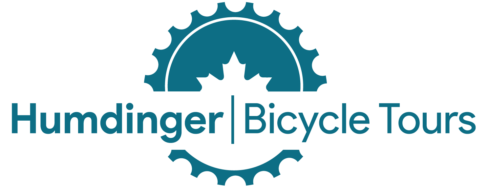Ah, the New Year, and its barrage of advice on resolutions, self-improvement, and goals… I apologize for jumping on the New Year’s goal-setting bandwagon, but it is as good a time as any to get some things off my chest on this subject, particularly about some the more nuanced concepts of mastery goals versus performance goals (aka ego goals), and a perhaps more important piece about using metacognition (planning, monitoring, and evaluating) to ensure you actually attain your goals.
Mastery versus performance goals
An example of a performance goal or an ego goal is “I want to be the fastest rider at our club” or “I want to win this race” or “I want to get an A in calculus”. By contrast, mastery goals would be “I want to ride the Rosseau Lake loop 5 minutes faster this week” or “I want to learn the strategies for finishing strong in a race” or “I want to understand calculus”. Performance goals can be broken down further into performance approach goals such as the examples given above, and performance avoidance goals, such as “I don’t want to be the slowest” or “I don’t want to fail calculus”. Please trust me when I say that performance avoidance goals are a bad idea – avoid them at all costs! The photo below of my avocado tree should serve as a dire warning against this practice

Performance goals can be great for achieving a very specific goal (such as being faster than your arch nemesis at next Tuesday’s ride), but the strategies you develop for attaining that goal may not be useful to future goals you set, unless the future goal is almost identical to the initial goal. And it can be a good feeling to be faster than your arch nemesis every Tuesday – until the thrill wears off or the arch nemesis gets faster! The strategies you develop to meet a performance goal usually do not help you when you are dealing with new environments, new situations, and different activities. Performance goals tend to lead to a few very specific default strategies that may not work when circumstances change. Those who set mastery goals are likely to develop more strategies, which are global and applicable to a wide variety of situations. And mastery goals also lead to better performance – so you can have your cake and eat it too!
Individualized goal attainment strategies
The issue for many of us is not so much the setting of the goals, but attaining them. The key to successful goal attainment may lie in how you develop and use strategies. It is ideal to develop a bank of potential strategies and a problem-solving process for how to select the best strategy to use under specific circumstances. While friends, family, coaches, bloggers (☺), and self-help gurus will offer up a myriad of potential strategies (and offer them up as the definitive answer to your problem), the strategy that works for you will be unique. It may be derived from one of their suggestions, but it will be your own version. For example, if your buddy tells you the key to making it up the last horrible hill of your morning ride is to count pedal strokes (a distraction strategy), you may find that distraction also works for you, but the specific strategy is mental rehearsal of a song. Or you may find that distraction does not work for you, and you need to give yourself some encouraging self talk such as, “come on Sara, you can do it”, or you need to focus very hard on looking ahead to a landmark in the distance, or on aspects of the skill itself such as smooth pedal strokes. Or, the strategy that works for you may be something completely different than anyone else has ever tried.
Using metacognition to attain goals
How you discover the strategies that work best for you comes from using a metacognitive problem solving process. Set a goal (I want to keep my speed above X when I climb that hill), make a specific plan and actually execute the plan (today I will be count pedal strokes on the hill), monitor whether or not the specific strategy is moving you towards your goal (I felt better on the hill, but I still didn’t keep my speed up), and evaluate (I think the counting strategy helps to distract me from my sore legs, but I need another piece to the plan to help keep my speed up. I will also try an easier gear and a higher cadence).
My friend and mentor, Helene Polatajko, gave a TEDx talk last year about how metacognition can be used to achieve some pretty amazing goals in rehabilitation – check it out here. The same ideas work for personal, career, and recreational goals, so please do add a dash of metacognition as you set out your 2018 targets.
Cheers to the New Year!
Sara
